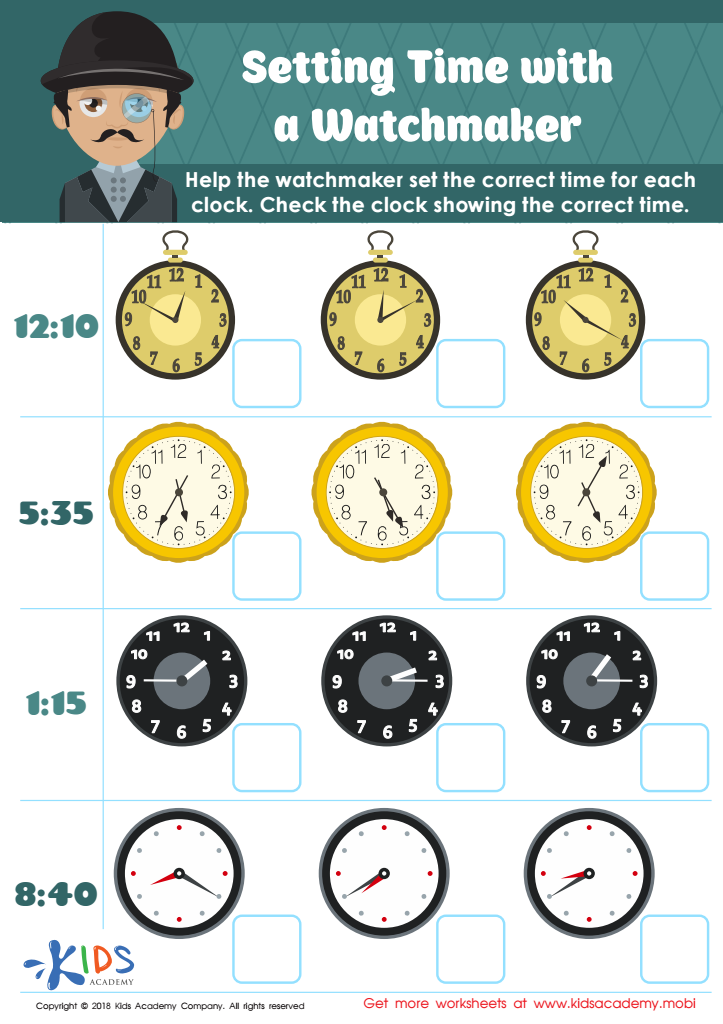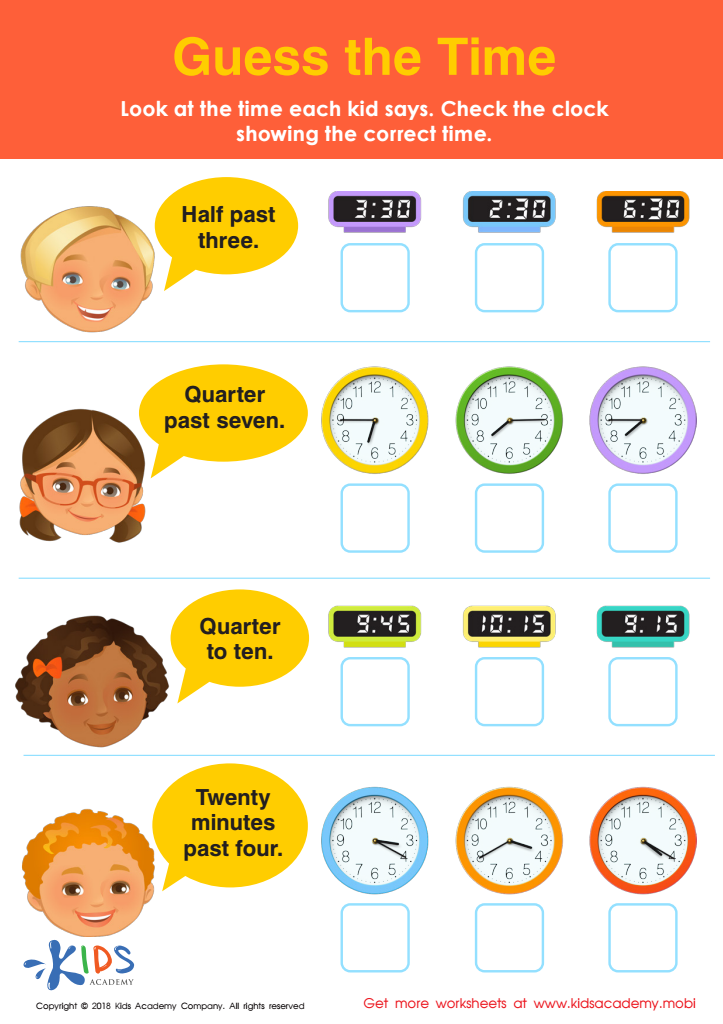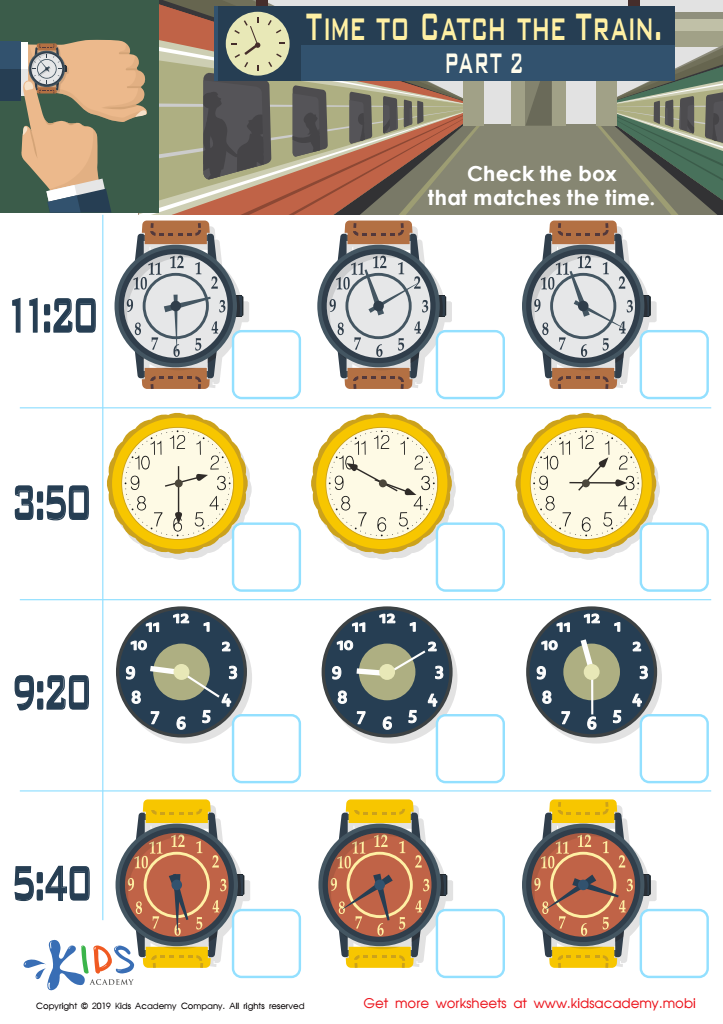Time recognition Measurement Worksheets for Ages 6-7
3 filtered results
-
From - To
Introducing our comprehensive Time Recognition Measurement Worksheets tailored for ages 6-7! Designed to effortlessly blend fun with learning, these worksheets help kids grasp the concept of time. Our engaging activities include reading clocks, understanding hours and minutes, and solving time-related problems to build essential skills. Whether it's matching clocks to times or sequencing daily activities, each worksheet is crafted to boost confidence and precision. Ideal for classroom and homeschool settings, our resources aim to make time-telling an enjoyable experience. Let your kids embark on this exciting educational journey and master the art of time recognition with ease!


Setting Time with Watchmaker Worksheet


Guess the Time Worksheet


Time to Catch the Train Part 2 Worksheet
Parents and teachers should prioritize time recognition and measurement for children aged 6-7 because it is foundational for their daily living and academic skills. Understanding time helps young children develop important cognitive abilities such as sequencing, prioritizing, and time management. These skills support punctuality in daily routines, which fosters discipline and responsibility. For instance, knowing when it’s time to start school, attend extracurricular activities, or go to bed helps children structure their day in a predictable and comforting way.
Additionally, grasping concepts of time contributes to mathematical thinking. Learning to tell time requires basic arithmetic skills and the ability to understand fractions as children interpret hours, minutes, and seconds. This foundational knowledge will later translate into more complex mathematical concepts.
Socially and emotionally, time recognition teaches patience and the value of planning ahead. Children who understand time can better manage expectations, reducing anxiety and frustration. For example, knowing that a favorite activity is at a certain time can ease transitions and cut down on temper tantrums.
Ultimately, early mastery of time recognition and measurement equips children with practical life skills, bolsters their academic foundation, and nurtures social and emotional development, making it an essential focus for parents and teachers working with 6- to 7-year-olds.
 Assign to My Students
Assign to My Students





















